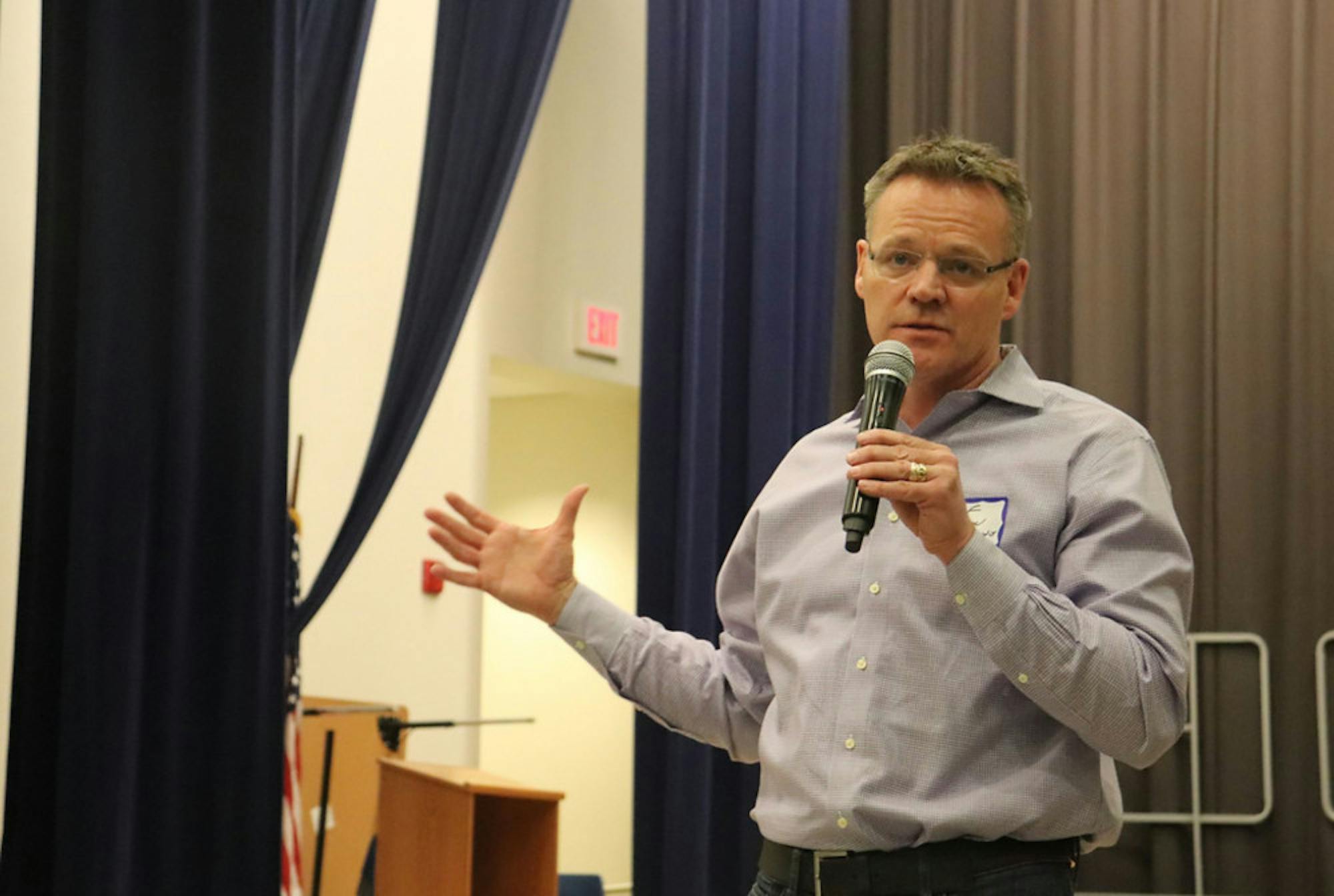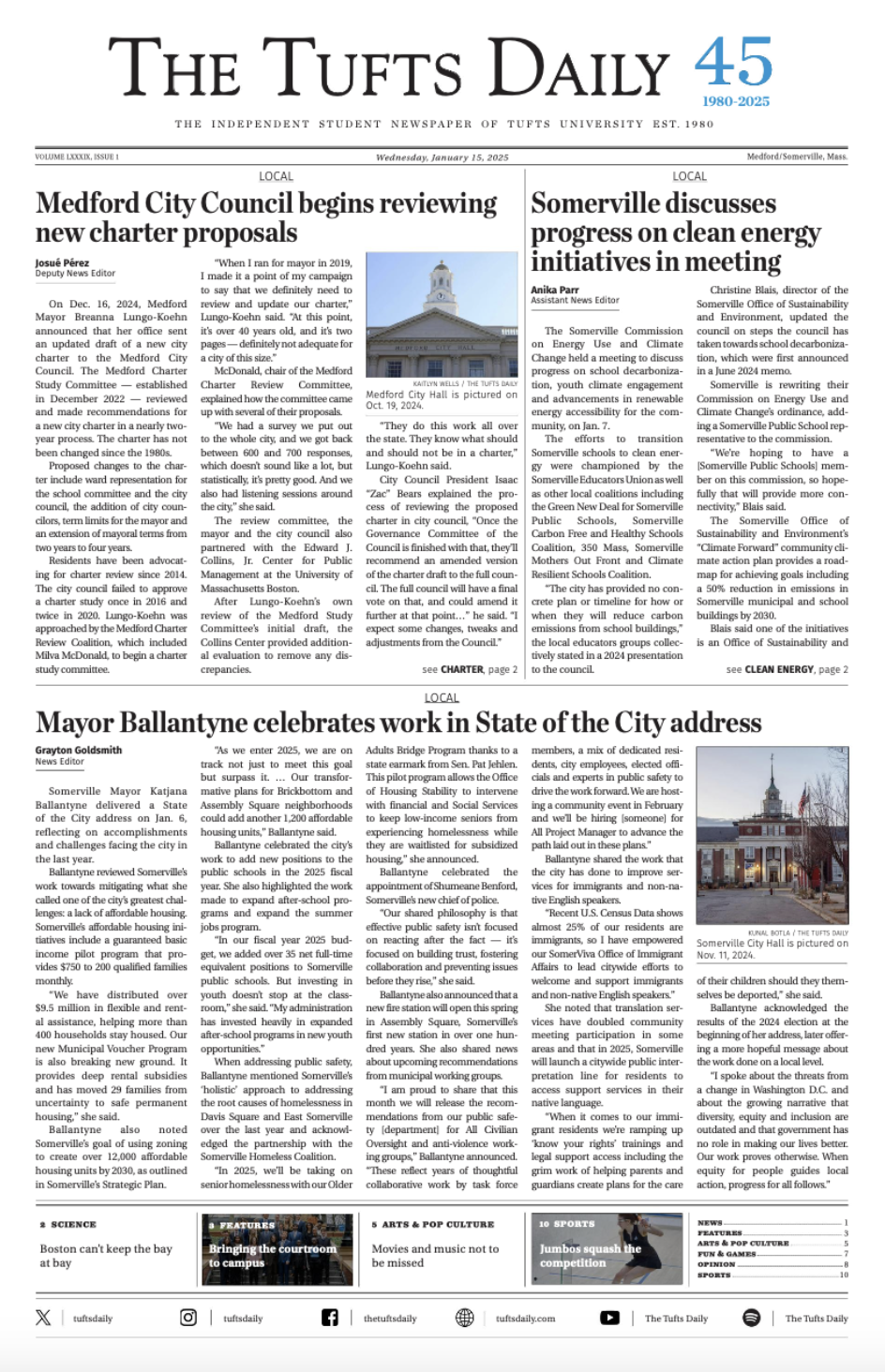The City of Somerville hosted a public meeting on Wednesday night to address community concerns involving the deployment of Somerville police officers to the Boston Straight Pride Parade on Aug. 31, 2019. An internal investigation published on Nov. 14, 2019, found no violations of department protocol by the 13 Somerville police officers during their deployment to the Boston Straight Pride Parade.
In response to a mutual aid request from the Boston Police Department (BPD), members of the Somerville Police Department's (SPD) Cops on Bikes for Regional Assistance (COBRA) unit were sent to the event to support the BPD in crowd control.
However, participants in the demonstrations against the paradeaccused the police contingent of heavy-handed and aggressive tactics directed primarily against counter-protesters who they were supposed to be protecting.
After outrage over SPD’s involvement spread on social media, a community meeting was held on Sept. 18, 2019, and SPD pledgedto conduct a thorough investigation for its after-action report.
The investigation, headed by Chief of Police David Fallon and senior SPD leadership who were uninvolved in the deployment, included interviews with all 13 officers, a review of the single civilian complaint about the event filed with the department, emails and comments from members of the public, and evaluation of a number of videos recorded of SPD officers at the event.
The report found that SPD officers made no arrests, did not use pepper spray or their batons, did not initiate interventions into the crowd of counter-protesters and did not wear riot gear. They did, however, enter the crowd and assist BPD officers in taking individuals into custody.
Somerville Mayor Joe Curtatone apologized for the department’s actions and condemned the Straight Pride Parade as “white nationalist hate” at the community meeting.
“If it was only about following protocol we wouldn’t be here tonight,” Curtatone said to nearly 100 community members gathered around tables in the Albert F. Argenziano School’s cafeteria.
In amemo sent to the Somerville City Council when the report was published, Curtatone urged the Council to pass a resolution supporting the city administration’s efforts to get SPD police unions to accept body cameras in negotiations over their ongoing collective bargaining agreement.
The memo also announced the mayor’s office would support continued dialogue on the controversy, work to create a civilian police advisory committee and review SPD’s use of asset forfeiture, which funded the deployment. Curtatone said he remains committed to those objectives on Wednesday night.
Ward 6 Councilor Lance Davis, who chairs the Public Health and Public Safety Committee, confirmed that although the council does not currently have an active body camera resolution, he would support one.
Chief Fallon, who was on hand for the meeting, affirmed his support for reform.
“I really think that in the 21st century to be successful in Somerville or anywhere you have to provide the types of policing the community demands,” Fallon said. “If any member of the community feels fearful of the police, that’s a vital concern for us.”
Fallon also pointed to the steps the department has already taken to remedy the issues brought to light by the Straight Pride Parade deployment. As outlined in the report, the SPD now requires supervisors to remind officers not to make unnecessary arrests and abide by use-of-force policies, while protecting First Amendment rights and public safety twice before deployment.
The SPD also says that it is increasing training for COBRA unit members, requiring officers to file reports on arrests they assisted in and seek that its officers are deployed in relief and support roles in future mutual aid operations.
However, SPD must respond to future mutual aid requests as it is required to do so under state law, according to Fallon.
Attendees at Wednesday’s community meeting, including several Tufts students, were sharply critical of the SPD and pushed for more drastic reforms.
During break-out sessions, groups recounted the police violence they witnessed on Aug. 31, 2019, and expressed indignation at questions they felt the report left unanswered.
Among the proposals put forth by attendees was a public apology by SPD, reducing the SPD’s budget and disarming patrol officers.
Numerous members of the public called for a civilian police oversight board with control of the SPD budget, the ability to investigate the department and the power to discipline officers.
Curtatone said that he was open to the idea, and Ward 2 Councilor Jefferson Thomas Scott, who also attended the meeting, said that he intends to propose an ordinance to create such a body. He admitted that this effort would face significant hurdles from state law and the SPD police unions.
The community meeting was facilitated by the Consensus Building Institute, a Cambridge-based mediation nonprofit, which will collect and summarize proposals and questions generated by the meeting. They will include these materials in a report to the mayor’s office.
Scott reflected on what he hoped the community meeting would accomplish.
“It’s my hope that the people at these tables will not walk away from here feeling heard,” Scott said. “It’s my hope that they will walk away from here feeling connected to 10 of their neighbors and ready to work together, to organize, to build the power to create the kind of change we need.”
Somerville holds community meeting addressing police deployment to Straight Pride Parade

Somerville Chief of Police David Fallon addresses residents at a community meeting about the Somerville Police Department's controversial deployment to the Straight Pride Parade in the cafeteria of the Albert F. Argenziano School on Jan. 22.





